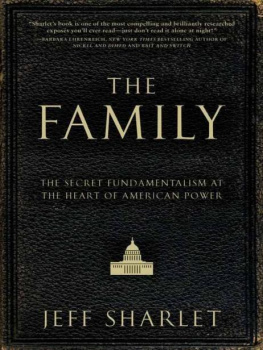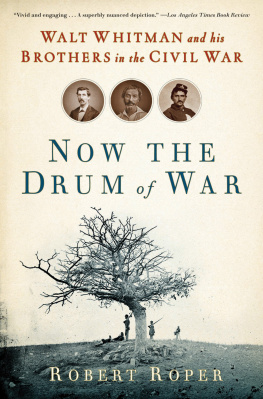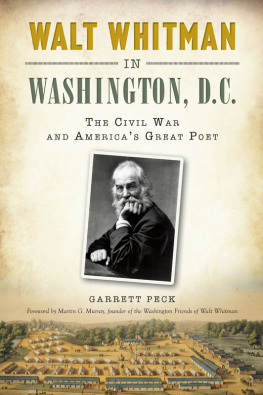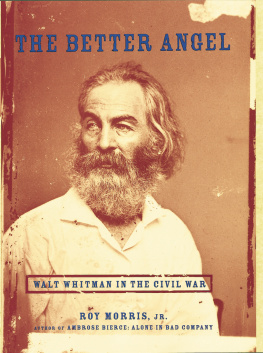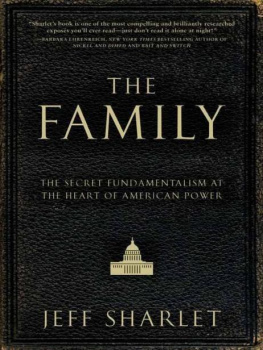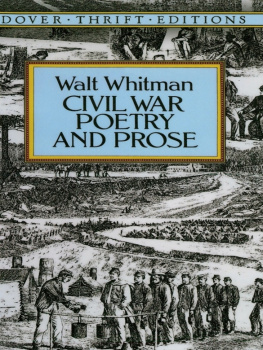Radiant Truths
Radiant Truths
Essential Dispatches, Reports, Confessions, &Other Essays on American Belief

EDITED AND INTRODUCED
BY JEFF SHARLET

Published with assistance from the foundation established in memory of Amasa Stone Mather of the Class of 1907, Yale College.
Copyright 2014 by Jeff Sharlet.
All rights reserved.
This book may not be reproduced, in whole or in part, including illustrations, in any form (beyond that copying permitted by Sections 107 and 108 of the U.S. Copyright Law and except by reviewers for the public pressw), without written permission from the publishers.
Yale University Press books may be purchased in quantity for educational, business, or promotional use. For information, please e-mail sales.press@yale.edu (U.S. office) or sales@yaleup.co.uk (U.K. office).
Designed by Sonia Shannon.
Set in Fournier type by Tseng Information Systems, Inc.
Printed in the United States of America.
Library of Congress Cataloging-in-Publication Data
Radiant truths : essential dispatches, reports, confessions, and other essays on American belief / [edited by] Jeff Sharlet.
pages cm
Includes bibliographical references.
ISBN 978-0-300-16921-8 (hardback)
1. United StatesReligion. I. Sharlet, Jeff.
BL2525.R33 2014
200.973dc23
2013031982
A catalogue record for this book is available from
the British Library.
This paper meets the requirements of
ANSI/NISO Z39.48-1992 (Permanence of Paper).
10 9 8 7 6 5 4 3 2 1
For Roxana
CONTENTS
ACKNOWLEDGMENTS
First, the living: Thanks to Dennis Covington, Anne Fadiman, Michael Lesy, Francine Prose, John Jeremiah Sullivan, and Matthew Teague for sharing their work. Special thanks to Peter Manseau, with whom Ive been in conversation about the documentation of other peoples religions since 2000. As for the dead, I hope my celebration of their writing will be enough; but for good measure, thanks to their estates and executors.
An anthology such as this is the result of years of conversation with too many writers, scholars, and friends to name. As I look over the long list from which I drew up my table of contents, though, Im compelled to thank at least Jeff Allred, my agent, Kathy Anderson, Patton Dodd, Omri Elisha, Donovan Hohn, Scott Korb, Bruce Lawrence, Marjorie Pryse, Bob Sharlet, Bob Smietana, Shalene Vasquez, Michael Vazquez, Diane Winston, JoAnn Wypijewski, and Angela Zito.
Ive developed my thinking about both literary journalism and religion through two small publications, the New York University Center for Religion and Medias critical review The Revealer and Killing the Buddha, a literary journal. Among the wonderful editors Ive worked with at those two publications are Garret Baer, Nicole Green-field, Kathryn Joyce, Ashley Makar, Paul Morris, Quince Mountain, Ann Neumann, Jay Rosen, Nathan Schneider, Meera Subramanian, and Brook Wilensky-Lanford.
This book began as a conversation with Yale University Presss wise, patient, and intellectually generous Jennifer Banks. Im grateful as well to Dan Heaton, Heather Gold, and Melissa Flamson. The book emerges in its present form from a course I first taught at Dartmouth College in 2011. The students in that course played an important part in helping me decide what shouldand should notbe included. Research assistants Emily LaFond, Kelsey Stimson, Lizzie Aviv, Ashley Ulrich, Hannah Jung, Sadia Hassan, and Madison Pauly helped me scan 150 years of literary journalism and make the selections included herein presentable. Im grateful to my Dartmouth colleagues for making room for this strange, in-between genre, and to Adrian Randolph, associate dean of the faculty, Arts and Humanities, for facilitating my research for this book.
The MacDowell Colony provided me with a crucial respite from campus life during which to complete my introduction. Im especially grateful to insights provided by my fellow residents Vanessa Hart-mann, Joan Leegant, Alex Mar, Jenna Osman, and Matt Wray.
And no book in which I have any kind of involvement is complete without gratitude for Julie Rabig, a scholar, writer, and reader, and, lucky for me, my wife.
Radiant Truths
INTRODUCTION
This Mutant Genre
REAL TOADS
... nor till the autocrats among us can be
literalists of
the imaginationabove
insolence and triviality and can present
for inspection, imaginary gardens with real toads
in them, shall we have
it.
The title of the 1919 poem by Marianne Moore from which Ive borrowed these lines is Poetry. But its paradoximaginary gardens with real toads in themis at the heart of literary journalism, the practice of using fictional techniques to write factual stories. This poem, for instance, is a fact, a real toad; my appropriation of it, my arrangement of the facts, is the garden.
Moore kept revising Poetry for five decades. The version she published in her 1967 Complete Poems did away with all of the above, leaving only three curmudgeonly lines.prevent me from quoting much more than dislike it.) Does that erasure make the real toads as imaginary as the garden? I dont think so. But then, Im a believer: I believe in the so-called art of fact.
SOMETHING BROUGHT YOU HERE
Over the years Ive written about churches, temples, and Buddhist centers, reported on exorcisms (individual and group), prayer cells, and prayer rallies, squinted at my notebook among thousands of teens thrilling violently to the Book of Judges. There were quieter moments, too: kitchen table shabbat takeout chicken with the last Yiddish writer; late night mojitos with a born-again Bible editor considering rebirth, third times the charm; whiskey with Mormons; tea before a shrine to an anarchist martyrs slingshot. Im most interested in the subset of religion known as belief, and that interest sometimes leads me to people who might reject the term religion altogether: Ive marched in Spain with Jewish-American veterans of the Abraham Lincoln Brigade, whispered with cadres of the Revolutionary Communist Party (certain that any Brooklyn caf I proposed for a meeting must be wired), and steamed with primitivists who insisted on nudity as a precondition for our conversation, the better to be honest with one another. As a writer I practice participant-observation, so, with as clear-as-can-be disclaimersLook, I dont really share your beliefs...Ive often joined in. Ive eaten holy dirt and shoveled it, too, wrestled with spiritual warriors, and prayed with actual warriors that Jesus should grant them righteous aim. Ive called down the moon with half-naked witches and laid handsspiritually speaking, of courseon whoever asked me to do so, even knowing that my touch was most likely profane. Its no accident that you came here, someone always tells me, here being her church, his coven, their compound, the midnight mass in the graveyard. Its like something brought you here.
If you write about religious people, even your friends may start making certain assumptions about the state of your soul. That is, theyll imagine that youre either a scholar or a seeker. That you write about religion for the sake of scientific inquiry or that you write about religion because youre searching for one. That youre devising a theory, or pursuing a process of elimination. That, sooner or later, youll arrive at an answer.
Next page

